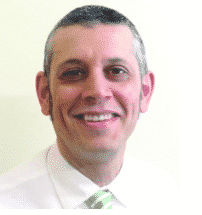Plagiarism Comes to a Small Town Hospital
What happens when plagiarism becomes a local news story...

Porter Medical Center in rural Addison County, Vermont seems like one of the least likely places to be at the center of a plagiarism story.
However, that’s exactly what happened as the medical center’s new president and chief operating officer recently announced his resignation over allegations of plagiarism. This has thrown the center for a loop as the previous acting head is taking the reigns again though only for a three-month span.
This has made the future uncertain for both the medical center and its former head. However, as the case seems to be wrapping up, there’s one key question that remains: Was it worth it?
The reason is that this isn’t the typical plagiarism scandal. It doesn’t involve a dissertation, a book or any other material for public consumption. Instead, it deals with internal emails, a whistleblower and a controversial decision by one site to report on the case.
While it seems to be clear that mistakes were made, it’s much less clear if the punishment fits the crime and that makes this case one that’s necessary to discuss.
The Story So Far

In June, Porter Medical Center hired Dr. Seleem Choudhury to be the organization’s president and chief operating officer. This brought an end to a months-long nationwide search that saw the organization without a permanent leader during the meantime.
When he took the job, he resumed the previous administration’s practices of sending weekly emails to the staff. Sending the first on June 7.
However, sometime in September insiders at Porter Medical Center forwarded on some of those emails to local media claiming that they had been plagiarized. One of the area publications, the biweekly Addison County Independent, opted not to run the story and instead published an op-ed decrying “gotcha” journalism.
Another, VTDigger, did choose to run the story and, in doing so, made it a major item of local news.
Ths more or less forced the Independent to cover the story and, on October 8th, after weeks of investigation and outside pressure, Choudhury resigned from his post effective immediately. Though it does not appear he was forced into resigning, his resignation was still quickly accepted by all involved.
John Brumstead, the CEO of UVM Health Network, the organization that oversee Porter Medical Center, said this:
“I want to thank Seleem for doing what he feels is best for Porter,” said UVM Health Network CEO Dr. John Brumsted. “Some may view this as a drastic step given the circumstances, but when a leader believes he can no longer be effective in his role, it is right to step aside.”
Choudhury also issued a personal apology saying that “I know I am no longer the right person to lead Porter and have made the decision to resign. I care very much for the organization and its people and have tried to inspire others through connection, dedication and passion. Above all, I want Porter to be successful.”
Porter is now beginning its search for a president anew but may be forced to have a string of acting presidents as the current one has said that they will only stay on for three months and the search is likely to take much longer.
Was the Response Appropriate?
There’s not much doubt that Choudhury did something he should not have done. Plagiarism, in any environment, is not appropriate and the fact that he plagiarized only in staff emails and in blog posts intended for a limited audience does not excuse him.
The better question is: Was it handled the correct way?
It’s important to keep in mind how this story came about. Anonymous employees of Porter reported the plagiarism to local media outlets. One of those media outlets declined to cover the story, dubbing it an internal matter, the other ran with it and made it a larger story. We don’t know if the whistleblowers first tried to take the matter up internally, why they chose to check the works for plagiarism or why they went to the media with their allegations.
It’s entirely possible that those breaking the news simply had a grudge with Choudhury and saw this as an easy way to hurt him and maybe get rid of him. Though unclean motivations don’t make the allegations less valid, they do call into question the path that was chosen.
The Independent was right. This is an internal matter for Porter first and foremost. Medical centers, especially those attached to universities, should have processes in place to deal with allegations of integrity violations. That system didn’t really get to play out the way it should.
In the end, the outcome may have been the same. Choudhury may well have been compelled to resign regardless of the approach. But at least a proper investigation could have gotten to the bottom of what happened and determined the outcome without the glare of public pressure.
If these allegations had been reported and Porter had failed to follow up on them, then whistleblowing may have been the only recourse. Once again, we don’t know if this happened or not but there has been no mention of it in the coverage.
Instead, what we got was a trial by media. Choudhury never really had a chance. Though he didn’t do himself any favors by not coming clean quickly about all of the plagiarism, it’s unlikely it would have mattered if he had. The nature of how the allegations came to light virtually guaranteed this outcome.
In short, Choudhury’s actions definitely warranted a response but it’s unclear if this is it. Given the harm that this does to both Choudhury’s career and Porter Medical Center as an institution, there were definitely better and less disruptive ways to handle it.
Whether this is Porter failing its employees or its employees failing Porter, an opportunity was missed to handle this with much less disruption and much more thoroughness.
Bottom Line
In the end, this case is a reminder of the importance of taking plagiarism policy seriously. While it’s unlikely that a case like this would have found the legs it did in a larger market with more saturated local media, it shows what can happen when someone with authority plagiarizes and that plagiarism goes out to the media.
We don’t know what happened behind the scenes before the case was brought to the media’s attention. We don’t know if Porter dropped the ball and got correctly called out for it or if people with a grudge against Choudhury simply took the case to the media first to maximize damage.
But that damage has collateral. Yes, Choudhury was forced to resign but now Porter Medical Center is known for having a plagiarist president and that hurts others who work there and maintain ethical standards
Yes, plagiarism needs to be handled swiftly and seriously, but it doesn’t need to be handled recklessly. In the end, the outcome might have been the same regardless of the approach, but at least we’d have confidence the resignation was the appropriate response for the misdeed, not just an attempt to appease media and lessen public pressure.
Does this mean Porter should have handled this quietly and without transparency? Of course not. But there’s a large difference between being transparent about an investigation and being pressured by the media into one. One actually aims to answer questions, the other leaves more questions behind.
That, unfortunately, is where we find ourselves today with Porter Medical Center and Choudhury’s work. Even worse, that’s where it will likely remain.
Want to Reuse or Republish this Content?
If you want to feature this article in your site, classroom or elsewhere, just let us know! We usually grant permission within 24 hours.
